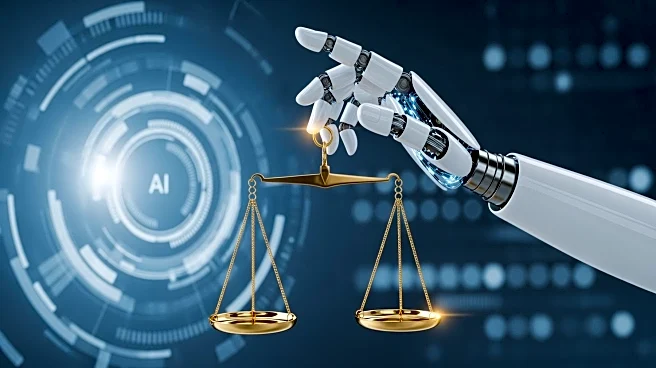What's Happening?
Vanessa Cooper, a partner at TLT, discusses the impact of artificial intelligence (AI) on the legal profession. Cooper's career spans both public and private sectors, and she has witnessed firsthand how AI is reshaping legal work. AI is particularly effective
in handling repetitive tasks, allowing lawyers to focus on more strategic and nuanced aspects of their work. However, Cooper emphasizes that AI cannot replace human judgment, especially in understanding client needs and crafting creative solutions. The technology is seen as a tool that requires careful direction and is only as effective as the person using it.
Why It's Important?
The integration of AI into legal practice represents a significant shift in how legal services are delivered. By automating routine tasks, AI allows lawyers to concentrate on higher-value work, potentially leading to more efficient and effective legal services. This transformation could lower costs for clients and increase access to legal assistance. However, it also raises questions about the future role of junior lawyers and the skills they need to develop. As AI continues to evolve, legal professionals must adapt to new technologies while maintaining the human elements of legal practice that AI cannot replicate.
What's Next?
As AI technology advances, its role in the legal sector is expected to grow. Legal firms may increasingly invest in AI tools to enhance their service offerings. This trend could lead to a reevaluation of legal education and training, with a greater emphasis on technology skills. Additionally, ethical considerations around AI's use in legal contexts will likely become more prominent, necessitating clear guidelines and regulations. The legal industry will need to balance technological innovation with the preservation of core legal principles and client trust.















